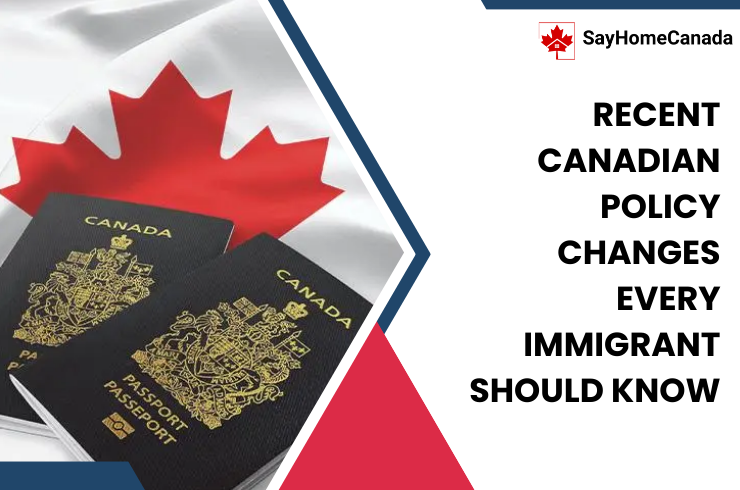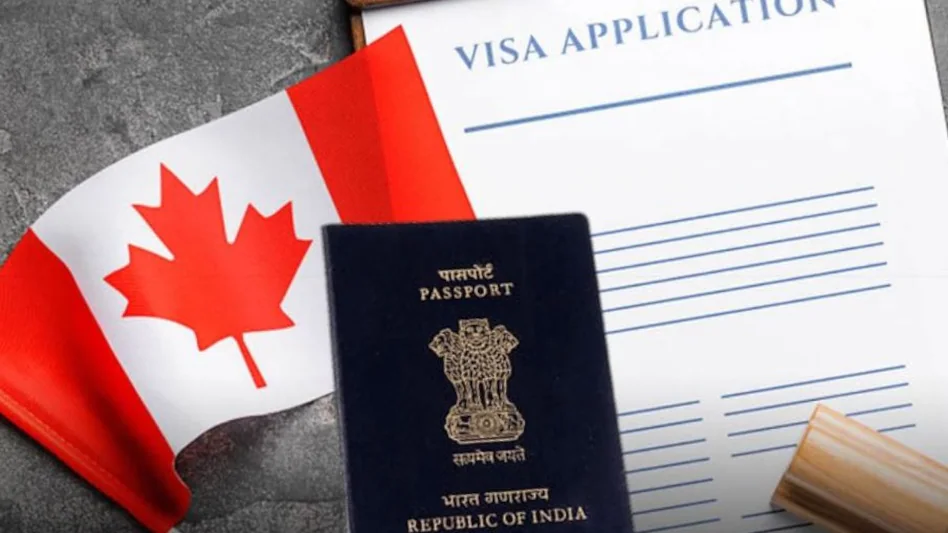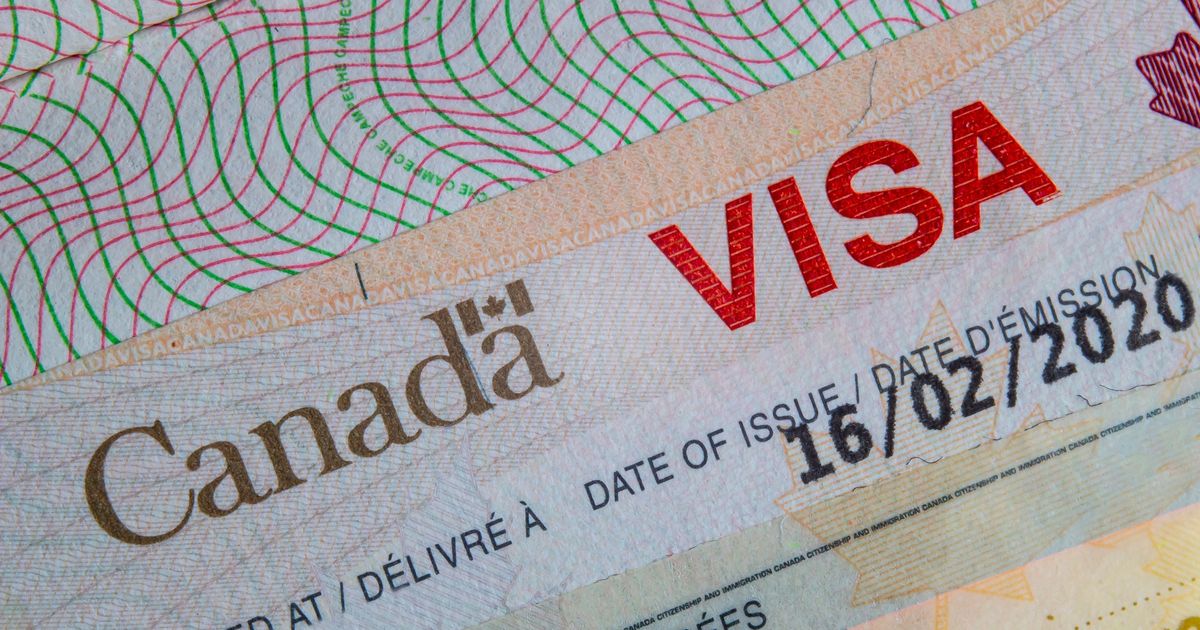
 Immigration
Immigration
Canada has long been one of the most welcoming countries for immigrants, offering a wide range of programs for skilled workers, students, and families seeking a better future. However, with the increasing pressure on housing, job markets, and social infrastructure, the Canadian government has recently announced major policy changes that will affect new and existing immigrants.
These updates impact various immigration programs, including Express Entry, Temporary Foreign Worker Program (TFWP), Study Permits, and Family Sponsorship. Whether you are planning to move to Canada or are already living there on a temporary visa, staying informed about these policy changes is crucial to making well-informed decisions about your future.
In this guide, we’ll cover:
✔ Reduction in Immigration Targets – Fewer permanent residency approvals in coming years
✔ Stricter Rules for International Students & Work Permits – Study permit caps, PGWP changes
✔ Changes in the Express Entry System – Prioritization of select professions
✔ New Regulations on Citizenship by Descent – Extension of policy changes
✔ Government Leadership Changes in Immigration – What this means for future policies
✔ Actionable Steps for Prospective Immigrants – How to prepare for these changes
Let’s dive into the details. 🚀

For years, Canada has been increasing its immigration targets to support economic growth. However, in October 2024, the federal government announced a major reduction in immigration targets for the coming years.
New Immigration Targets
Why is Canada Reducing Immigration?
✔ Housing Shortages: Rising housing costs and lack of affordable housing make it difficult to accommodate high immigration numbers.
✔ Pressure on Social Services: Education, healthcare, and public services are under strain due to rapid population growth.
✔ Economic Adjustments: The government is focusing on higher-quality immigration programs that meet labor shortages without overburdening infrastructure.
📌 Who is Affected?
🔹 Skilled workers applying through Express Entry & Provincial Nominee Programs (PNP)
🔹 Family Sponsorship applicants (longer wait times possible)
🔹 Temporary foreign workers seeking Permanent Residency (PR) pathways
📌 What You Should Do:
✔ Apply as early as possible before further restrictions are imposed.
✔ Consider regional and provincial programs (PNPs) as alternatives to Express Entry.
✔ Work with an immigration consultant to improve your chances of PR approval.

Canada is reducing the number of study permits issued to international students. This is a direct response to concerns about:
✔ Who is Affected?
🔹 New international students applying for a Study Permit
🔹 Those planning to apply for Post-Graduation Work Permits (PGWP)
✔ New Requirements for Study Permits
✅ Higher proof of funds – Students must show increased financial ability to cover their tuition and living expenses.
✅ Stronger ties to home country – Immigration officers will scrutinize applicants’ intentions to return home after graduation.
✅ Quality control on schools – Some institutions may no longer qualify for student visa sponsorship.
📌 Tip: If you are planning to study in Canada, apply early and ensure you meet the new financial requirements.
Post-Graduation Work Permit (PGWP) Changes
🔹 PGWP eligibility is now stricter – Some institutions and online courses may no longer qualify.
🔹 English/French language proficiency requirements introduced – Students must pass a language test to apply for PGWP.
📌 What You Should Do:
✔ Before enrolling, confirm that your school and program are still eligible for PGWP.
✔ Improve your language skills (IELTS, CELPIP) to meet the new PGWP requirements.

The Express Entry system has been updated to prioritize certain occupations due to labor market shortages.
Who is Getting Priority?
✔ Education Professionals – Teachers and early childhood educators are now prioritized.
✔ Healthcare Workers – Nurses, doctors, and caregivers remain a priority.
✔ Construction & Skilled Trades – Due to a labor shortage in housing projects.
📌 If your profession is NOT in demand:
✔ Consider getting a certification or diploma in a priority field.
✔ Explore Provincial Nominee Programs (PNPs), which have their own selection criteria.
The Canadian government has extended the deadline for changes to the Citizenship Act regarding the first-generation limit (FGL) to citizenship by descent.
✔ The new deadline is April 25, 2025.
✔ This affects children born outside Canada to Canadian parents.
📌 Who is Affected?
✔ Parents with Canadian citizenship living abroad who want their children to be Canadian citizens.
✔ What You Should Do:
✔ If your child is affected by this rule, apply for their citizenship before April 2025.
Also Read : Canada’s Top Family Visa Options for Ghanaians
Canada has a new Minister of Immigration, Rachel Bendayan, replacing former minister Marc Miller.
🔹 What does this mean?
✔ New policies may be introduced under her leadership.
✔ More focus on economic immigrants and reducing overall immigration levels.
📌 Tip: Stay updated with government announcements to anticipate future policy changes.

If you’re planning to move to Canada, here’s how to prepare for these new policies:
✔ Apply Early: Canada is reducing PR approvals—apply before further restrictions come.
✔ Improve Your CRS Score: If you’re in Express Entry, work on boosting your CRS score with additional work experience, certifications, or French skills.
✔ Explore Alternative Pathways: Consider Provincial Nominee Programs (PNPs) and Rural & Northern Immigration Pilot (RNIP) for better chances.
✔ Stay Informed: Follow IRCC updates and work with a licensed immigration consultant.
Canada’s immigration policies are changing to balance economic growth with infrastructure challenges. If you are a prospective immigrant, understanding these updates and taking proactive steps can significantly improve your chances of success.
🚀 At SayHomeCanada Immigration, we provide expert guidance on:
✔ Study & Work Permit applications
✔ PR & Express Entry strategies
✔ Visa rejection solutions & reapplications
📞 Contact SayHomeCanada Immigration today for a consultation and take the first step toward your Canadian dream!
📌 Answer: Canada is reducing immigration targets to manage housing shortages, strain on social services, and economic adjustments. The government believes that lowering the number of new permanent residents will help stabilize the housing market and improve access to healthcare, education, and infrastructure.
🔹 New targets:
✔ 2025: 395,000 new permanent residents
✔ 2026: 380,000 new permanent residents
✔ 2027: 365,000 new permanent residents
🚀 What you should do: If you’re planning to immigrate, apply as early as possible before further restrictions are introduced.
📌 Answer: The Canadian government is limiting the number of study permits issued to international students to control overcrowding in colleges and universities.
🔹 New Requirements for Study Permit Applicants:
✔ Higher financial proof – More savings required to prove affordability
✔ Stronger ties to home country – You must convince IRCC that you will return home after your studies
✔ Stricter school selection criteria – Not all institutions will qualify for study permit applications
🚀 What you should do: If you plan to study in Canada, check if your school is still eligible and ensure you meet the new financial requirements.
📌 Answer: The government has introduced new rules for PGWP applications to ensure students contribute effectively to the workforce.
🔹 New PGWP Requirements:
✔ Language Proficiency Test Required – IELTS/CELPIP test scores may be needed
✔ Not all institutions qualify – Some private institutions may no longer be eligible
✔ Online programs may not count – More restrictions on distance learning
🚀 What you should do: Before choosing a study program, confirm that your institution and course are still eligible for PGWP.
📌 Answer: The Express Entry system now prioritizes certain occupations due to labor shortages in key sectors.
🔹 Priority Occupations for 2025 & Beyond:
✔ Education Professionals – Teachers, early childhood educators
✔ Healthcare Workers – Nurses, doctors, personal support workers
✔ Construction & Skilled Trades – Electricians, plumbers, welders
🚀 What you should do: If your profession is not in demand, consider upskilling or switching to a priority field.
📌 Answer: Family sponsorship programs remain open, but processing times may increase due to lower immigration targets.
🔹 Key Updates:
✔ Spousal Sponsorship remains unchanged, but backlogs may increase
✔ Parents & Grandparents Sponsorship may see fewer invitations
✔ Super Visa for Parents remains a good alternative for long-term visits
🚀 What you should do: If you’re planning to sponsor a family member, apply as soon as possible to avoid longer wait times.
Thank you for the response .
Let's Connect